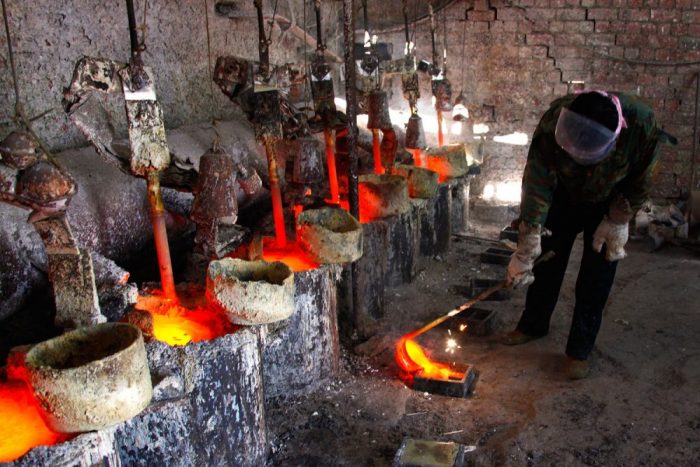The trade truce negotiated by the US and China on the weekend is likely to make it easier for US companies to get export permits for rare earths, sources say.
But industry sources told Reuters any suggestion that Beijing will completely remove restrictions on rare earth elements is unlikely.
China added seven rare earth elements and related items to an export control list on April 4 as part of its retaliation against ‘reciprocal tariffs’ imposed by US President Donald Trump.
ALSO SEE: Asian Markets Rise After US, China Agree to Cut Majority of Tariffs
The decision means exporters need to apply for licences before they sell refined rare earth minerals outside China.
While the decision applied to all countries, the likelihood of US customers receiving export licences during the trade war looked unlikely. Elon Musk said last month Tesla was in talks with Beijing over licences for its Optimus robots.
The truce announced on Monday could see the Ministry of Commerce expedite approvals, which in theory take 45 days, and even grant licences for US customers soon, according to two sources in the industry who spoke on condition of anonymity given the sensitivity of rare earth deals in China.
“We are expecting to see an acceleration in the issuance of the required export licence and exporters with clients in the US might get a licence soon,” one of the sources said.
However, China is unlikely to remove the export controls because they form part of a broad package of measures designed to give Beijing greater control over various critical minerals where it dominates the mining or processing, they added.
China, the world’s largest supplier of dozens of strategic minerals, began imposing restrictions in 2023 on exports of several minerals vital to sectors ranging from chipmaking and energy transition to defence.
The United States, which imports most of its rare earths from China, which dominates the refining process for rare earths, faces the threat of being cut off from critical minerals vital to defence and other high-tech sectors.
Australia may set up a critical minerals stockpile
Meanwhile, the Labor Party victory in the recent Australian election means a promise by Prime Minister Anthony Albanese to set up a strategic reserve stockpile of rare earths and other critical minerals may get a green light.
Local mining companies have welcomed the move, saying the re-election of Albanese paves the way for implementation of a A$7-billion critical minerals production tax incentive (CMPTI), and a strategic reserve stockpile.
That policy aims to support downstream processing and boost Australia’s global competitiveness in battery and energy transition materials.
The CMPTI, which was approved by Parliament before the election, should “level the playing field with global competitors and provide the certainty investors need to commit to major downstream processing projects in Australia”, Association of Mining and Exploration Companies (Amec) CEO Warren Pearce has been quoted as saying.
The strategic reserve – aimed at bolstering domestic and allied supply chains – is seen as an additional measure to the tax incentive.
Australian government support for a stockpile of priority minerals has been seen as important because of geopolitical volatility between the US and China, which dominates the processing of the world’s rare earth elements.
Australia already supplies critical minerals to the US, South Korea and Japan, but the Minerals Council of Australia has conceded that the establishment of a strategic reserve of key minerals is not without risk, because it could impact the commercial viability of operations by exerting downward pressure on commodity prices.
- Reuters with additional input and editing by Jim Pollard
























